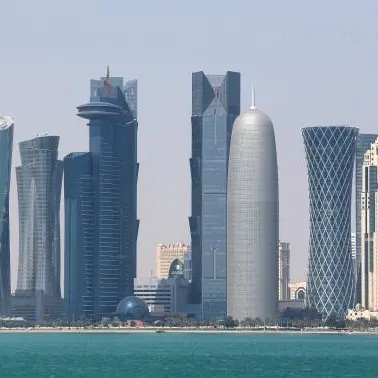PHOTO
The government is working on encouraging all programs and initiatives that support SMEs’ development efforts, El Saeed noted back then.
The country has been trying in recent years to support the sector, both financially and in terms of legislation, as one of the globally acclaimed engines of global economic growth and employment.
Financial incentives
Egypt’s monetary policies have been directed towards boosting the industry and empowering entrepreneurs in recent years.
In 2015, the Central Bank of Egypt launched a four-year initiative that obliged banks operating in the Egyptian market to direct at least 20% of their loan portfolio to SMEs. The CBE also capped rates for SME lending at low levels, ranging from 5% to 12%, depending on the firm’s size. Early this year, the CBE’s governor Tarek Amer told local news that the initiative would be extended for another four years.
The SMEs initiative aims at allocating EGP 100 billion worth of banking financing at an 8% descending rate of return to fund private companies in the industrial, agricultural, and contracting fields. However, the corporate should have annual revenue of EGP 50 million or more.
Later in June 2020, the bank decided to include new categories of companies in the initiative effective since December 2019.
The first category includes the newly established startups, while the second entails small firms affiliated to large institutions or owned by clients with high financial solvency.
The banking sector provided, under the initiative, funding of approximately EGP 180 billion, Amer said on August 18th.
He elaborated that 120,000 corporates and 1 million individual borrowers have benefited from the initiative.
Regulatory incentives
In response to SME concerns, the government moved to set policies, and thus create an overall business enabling environment for SMEs growth to thrive.
In July, President Abdel Fattah el Sisi approved the SMEs Act, which includes tax and non-tax incentives for entrepreneurs and investors, and thus supports SMEs to go legit.
The legislation stipulates that MSME owners would be granted exemptions from tax and registration fees. It also gives them easier access to real estate and guarantees a full refund of infrastructure expenses for manufacturing businesses.
SMEs will also benefit from 5-year credit facility agreements whose terms will start upon the date of registering their facilities at the commercial registry, Finance Minister Mohamed Maait said in a 2019 statement.
The bill also includes a simplified tax system for SMEs, which will help reduce tax liability, facilitate tax measures, boost their productivity and operational efficiency, the minister pointed out.
“I believe the most important thing about the law is that it grants tax cuts to any businessman or ordinary individuals who decide to invest their profits in SMEs. This will automatically encourage investors to invest in that sector,” Hassan el Shafei, the head of the SME committee at the Egyptian Businessmen’s Association told the ZAWYA news platform in August.
El Shafei added that his group hopes to raise the SMEs currently “meager” contribution to Egypt’s GDP from 25 to 60% over the next five years.
The new law acknowledged entities such as accelerators and incubators for the first time, giving them monetary privileges to promote entrepreneurship.
It also provides a precise definition of microbusinesses and SMEs based on annual turnovers or assets value -in the case of manufacturing enterprises.
The law gave investors priority in asset distribution in case an enterprise is liquidated, aiming to stimulate investments in the sector.
To reduce bureaucracy, the new legislation grants the state-owned Micro, Small, and Medium Enterprises Development Agency (MSMEDA) a full authority to issue all required licenses to newcomers.
Egypt has been taking measures to support SMEs, aiming to have “a pioneering role in entrepreneurship and is supporting it through taking actions that have paved the way for innovation culture in the Arab world,” Hussain Al Mahmoudi, CEO of Sharjah Research, Technology and Innovation Park in the UAE, said in a May statement.
Copyright © 2020 Arab Finance Brokerage Company All rights reserved. Provided by SyndiGate Media Inc. (Syndigate.info).












